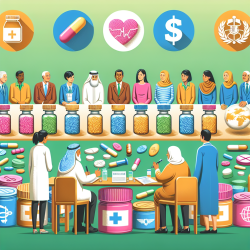Introduction
In the realm of child development, physical activity (PA) is a cornerstone for fostering both physical and mental well-being. The Results from the Lebanese 2022 report card on physical activity for children and youth provides a comprehensive overview of PA indicators among Lebanese children and youth, highlighting areas of concern and opportunities for improvement. As practitioners dedicated to enhancing children's outcomes, it is imperative to leverage such data-driven insights to inform our practices and advocate for systemic changes.
Key Findings from the Lebanese Report Card
The Lebanese 2022 report card evaluates various PA indicators using a harmonized process recommended by the Active Healthy Kids Global Alliance (AHKGA). Despite the challenges faced, such as economic instability and the COVID-19 pandemic, the report card offers a snapshot of Lebanon's PA landscape for children and youth aged 13-17 years. Key findings include:
- Overall Physical Activity: Only 20.7% of adolescents met the recommended PA levels, earning a grade of D-.
- Active Transportation: A slight improvement was noted with a grade of D+, as 36.8% of adolescents used active transportation.
- Sedentary Behaviors: Approximately 55.2% of participants engaged in less than 3 hours of sedentary activities daily, receiving a grade of C.
- School and Government Support: Both indicators received a grade of D, indicating the need for enhanced support and policy implementation.
Implications for Practitioners
For practitioners, these findings underscore the urgent need to prioritize PA promotion within educational settings and beyond. Here are actionable strategies to consider:
- Integrate PA into Therapy Sessions: Encourage active play and movement-based activities during online therapy sessions to promote physical and cognitive development.
- Collaborate with Schools: Advocate for increased PE classes and support schools in implementing PA-friendly policies.
- Engage Families and Communities: Educate parents and communities about the benefits of PA and encourage active family routines.
Encouraging Further Research
The report card's findings also highlight gaps in data, particularly for younger children (ages 5-12) and indicators such as organized sports and active play. Practitioners can contribute to filling these gaps by:
- Conducting Local Research: Partner with local universities or research institutions to gather data on PA behaviors in younger children.
- Participating in National Surveys: Encourage participation in national PA surveys to ensure comprehensive data collection.
Conclusion
The Lebanese 2022 report card serves as a critical tool for practitioners aiming to enhance PA outcomes for children and youth. By implementing evidence-based strategies and advocating for systemic changes, we can create environments that support healthy, active lifestyles for all children. To read the original research paper, please follow this link: Results from the Lebanese 2022 report card on physical activity for children and youth.










